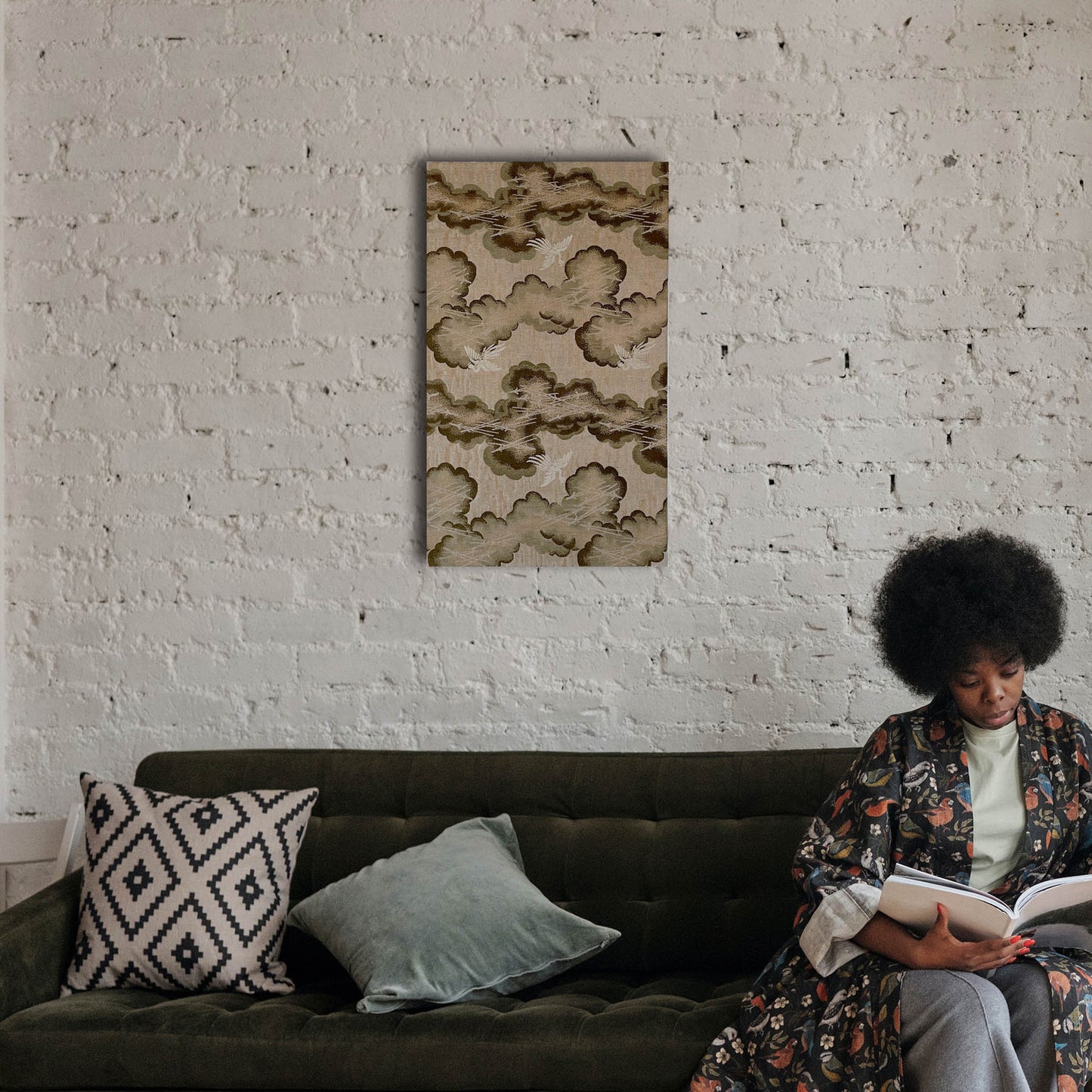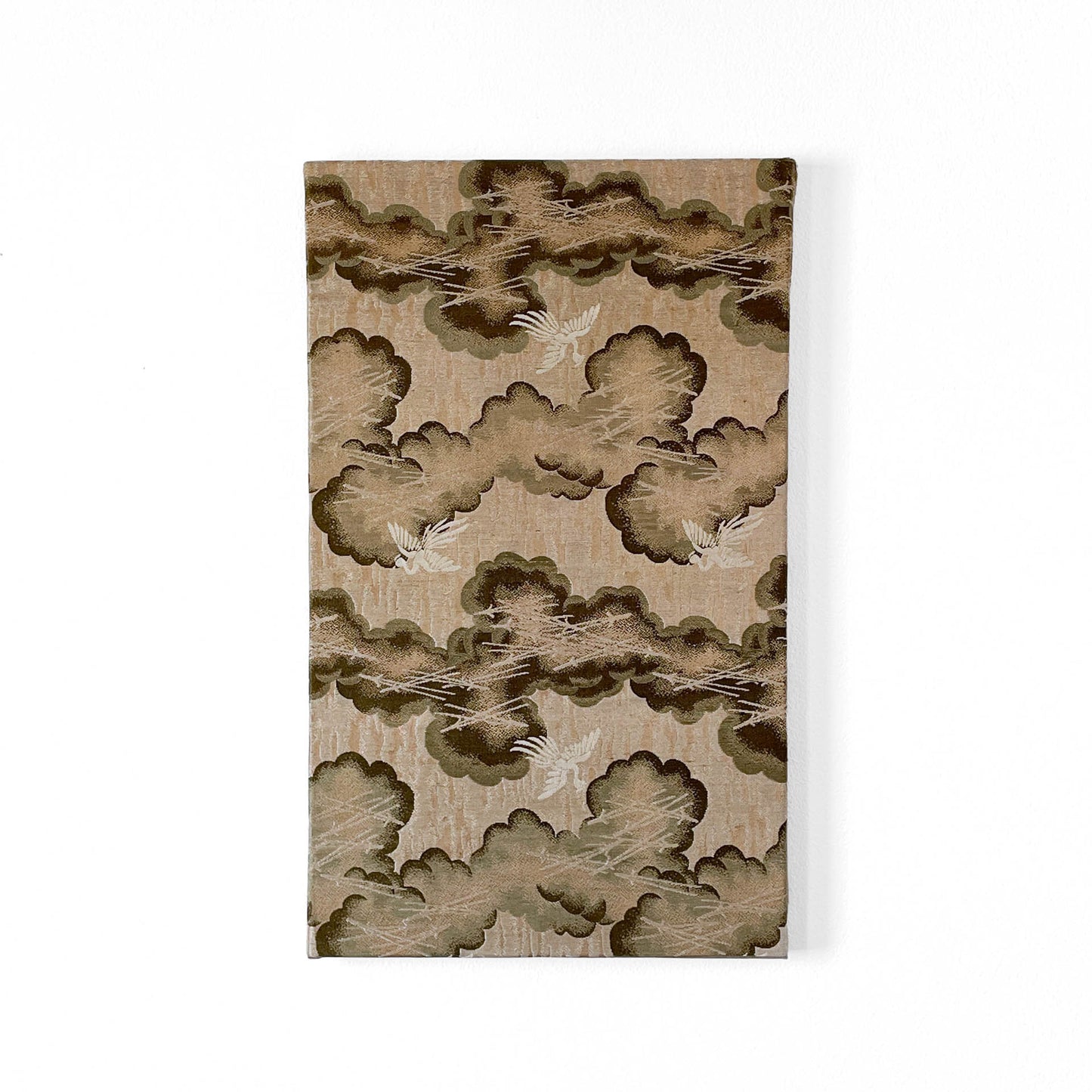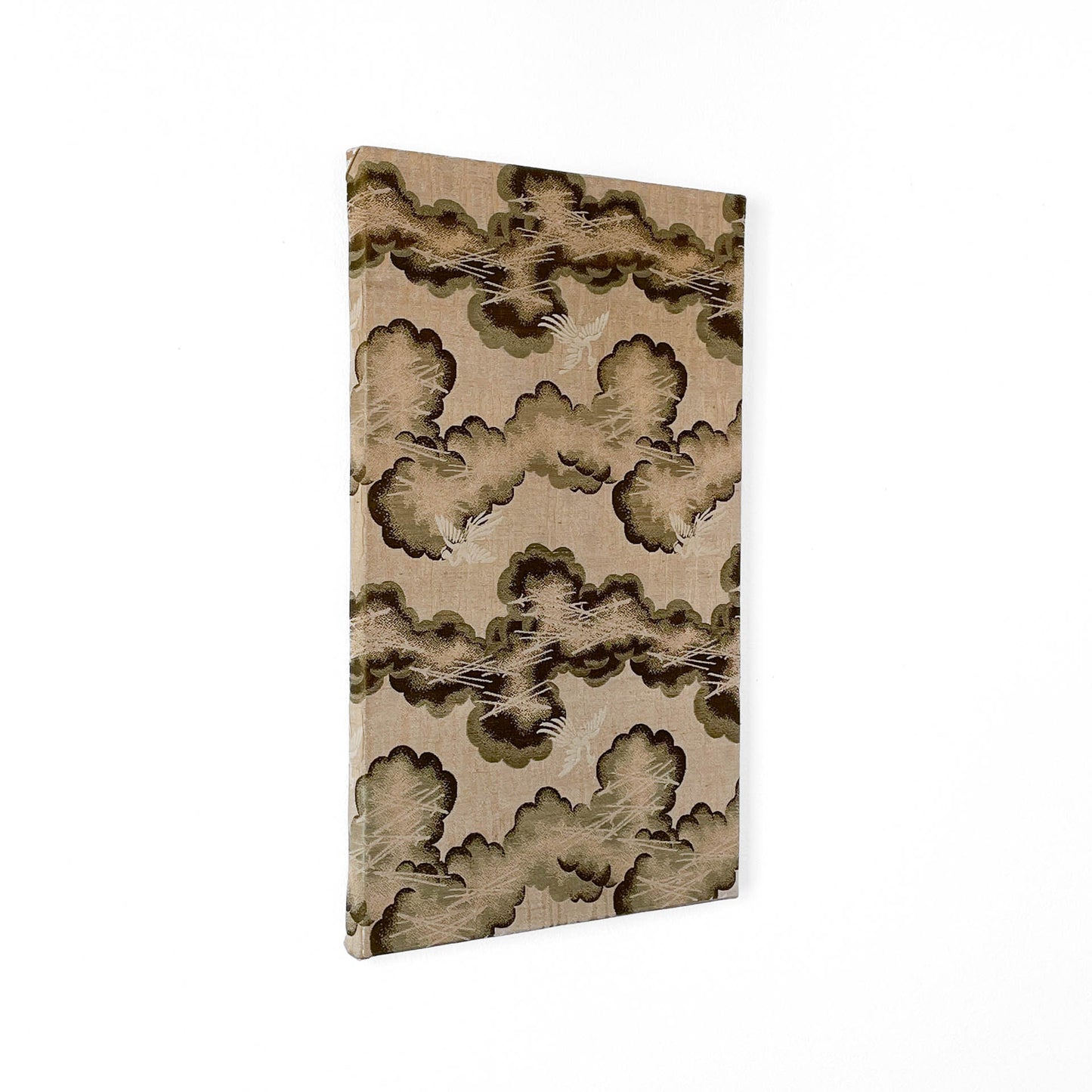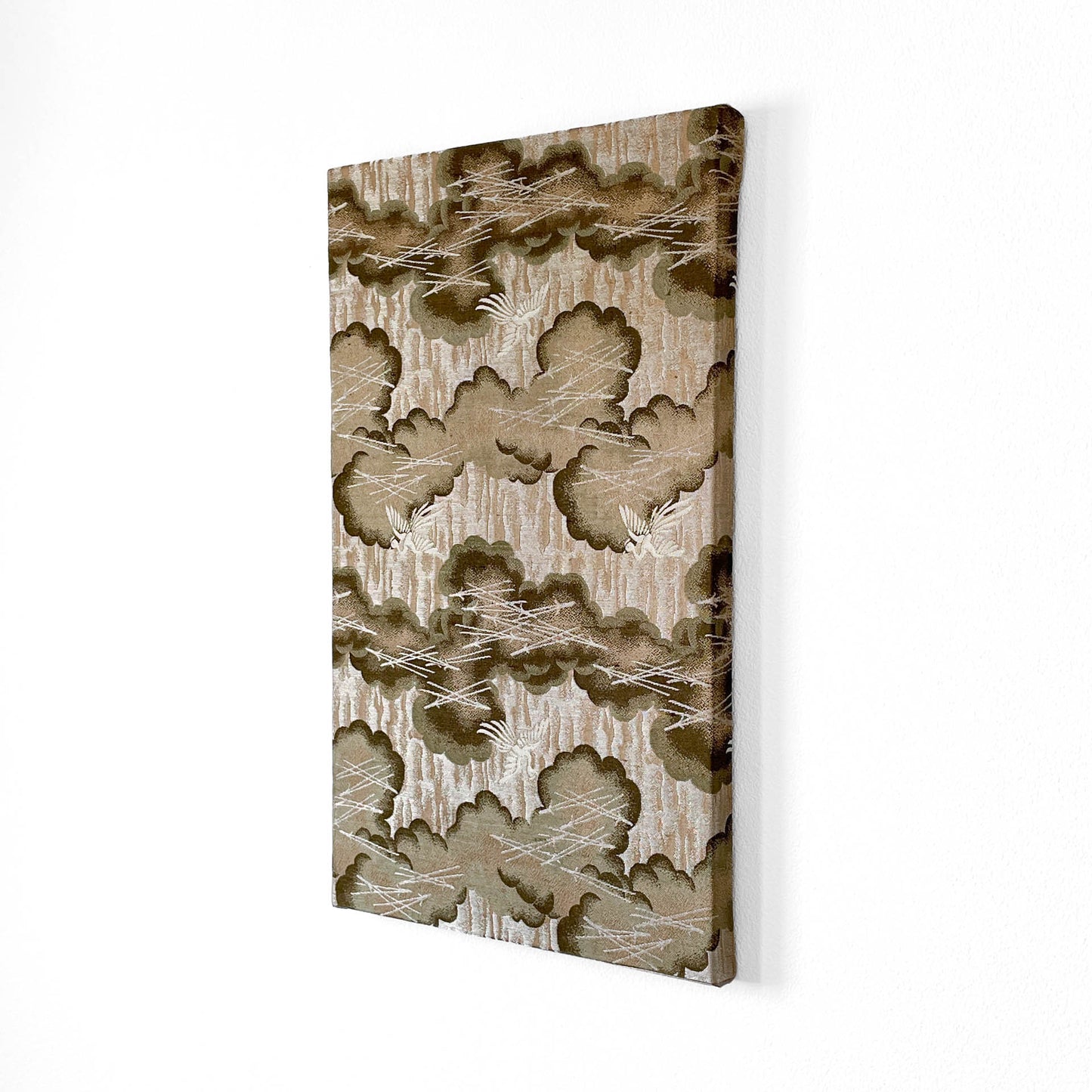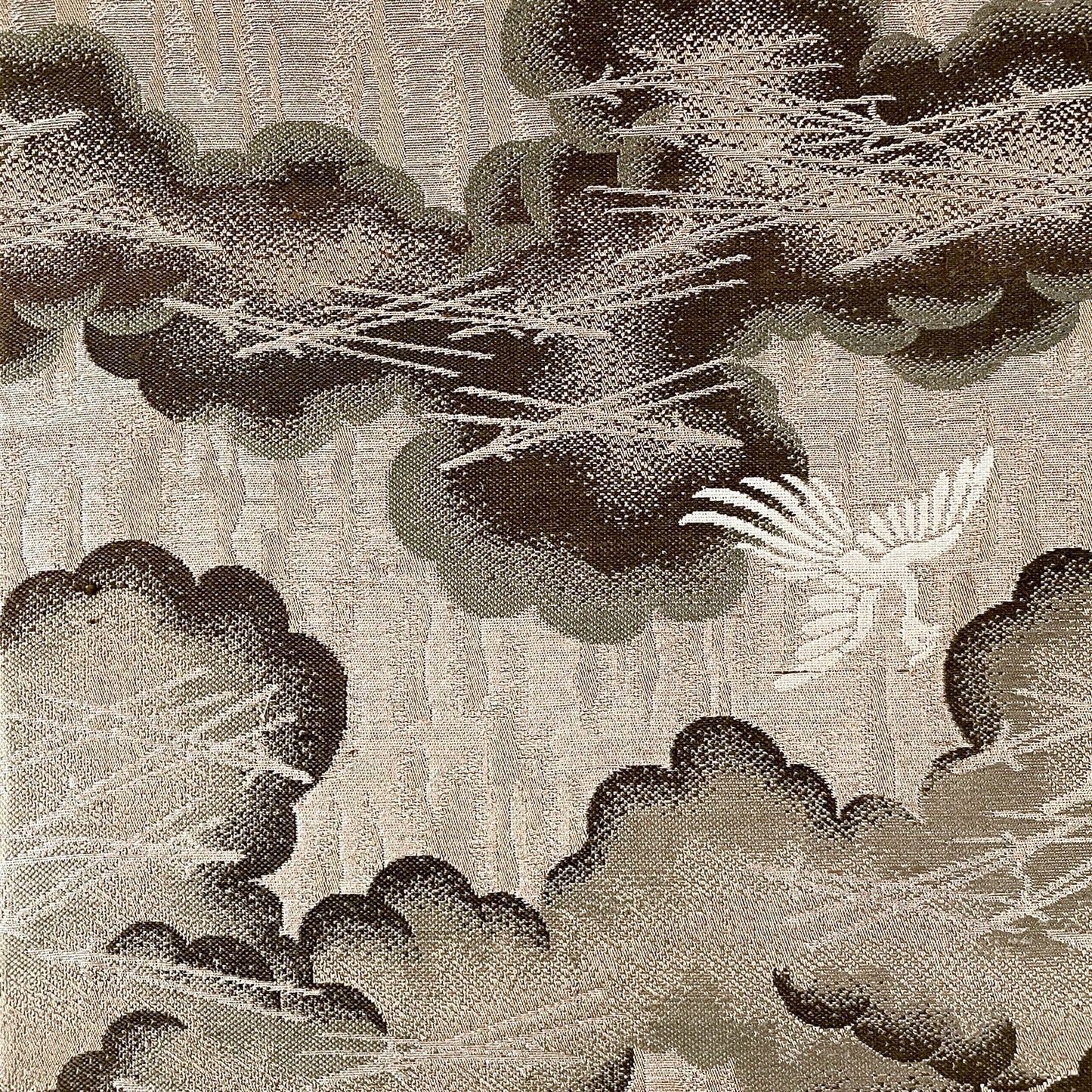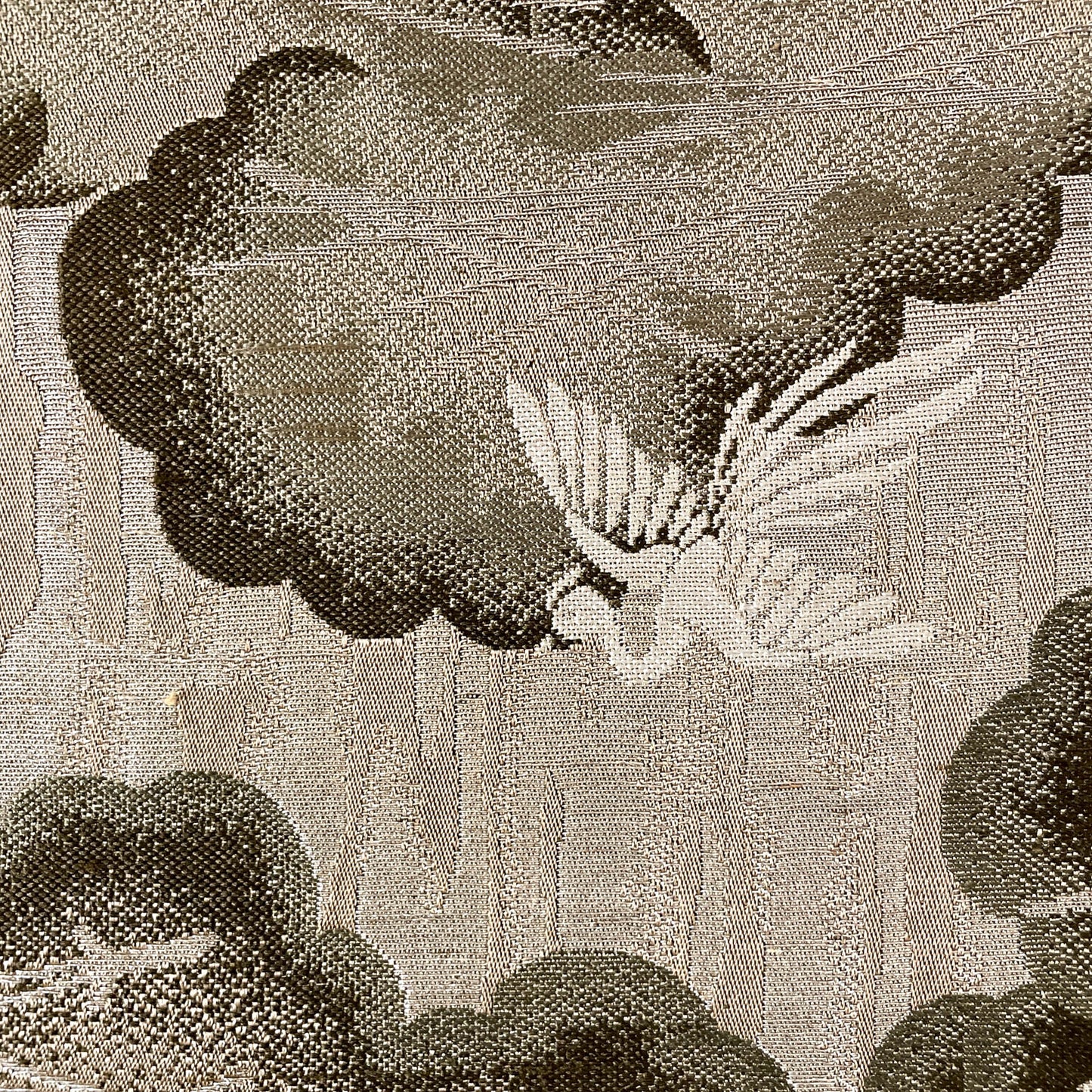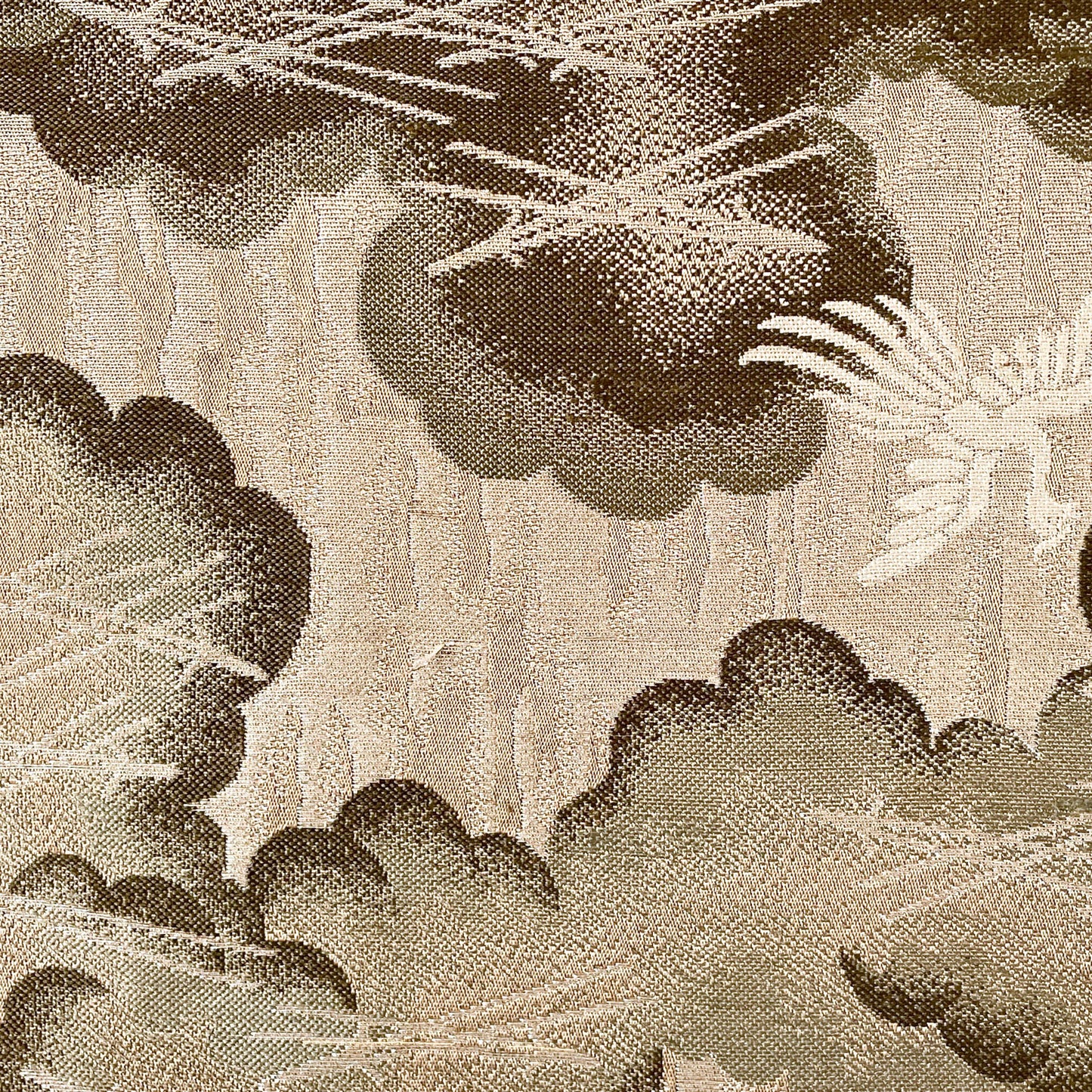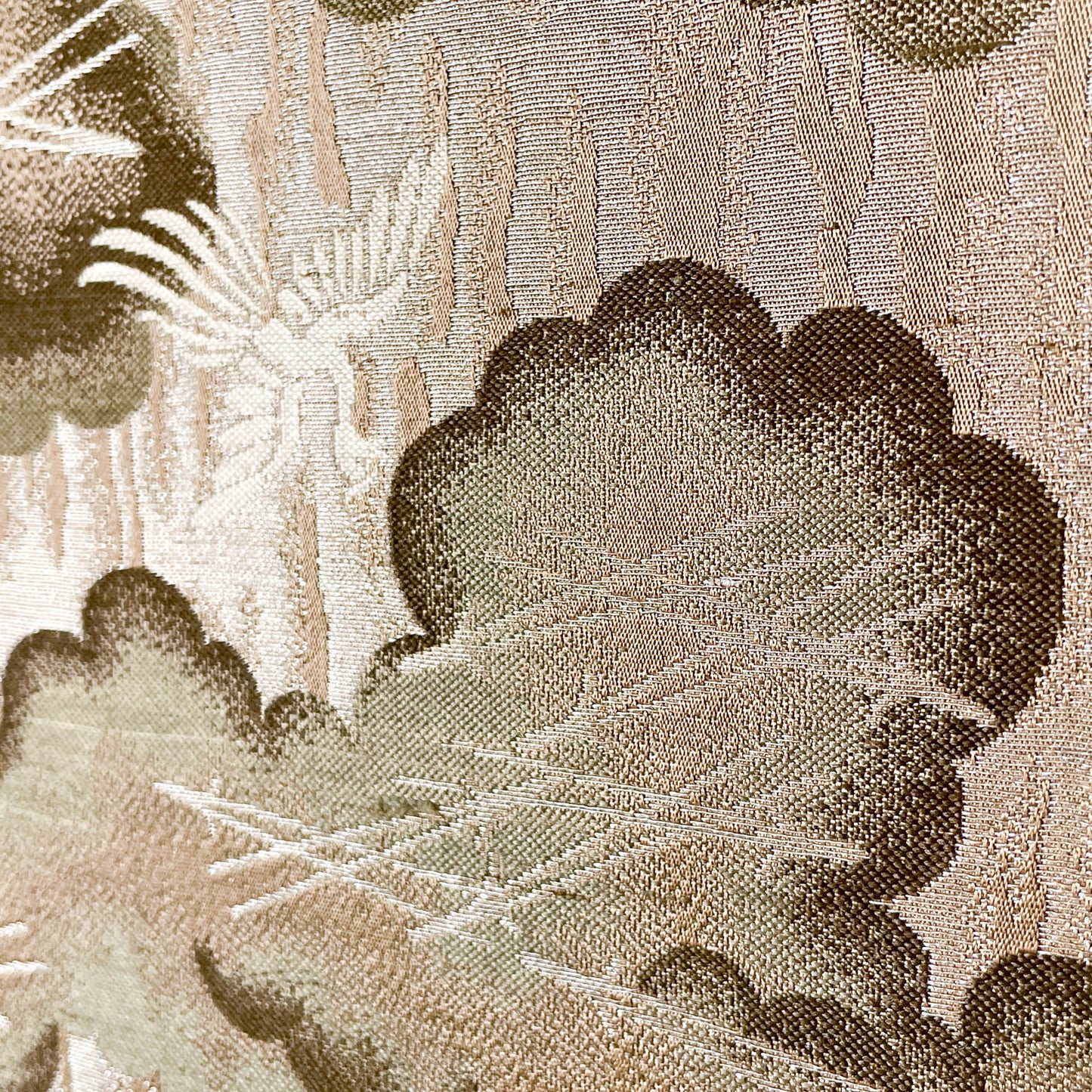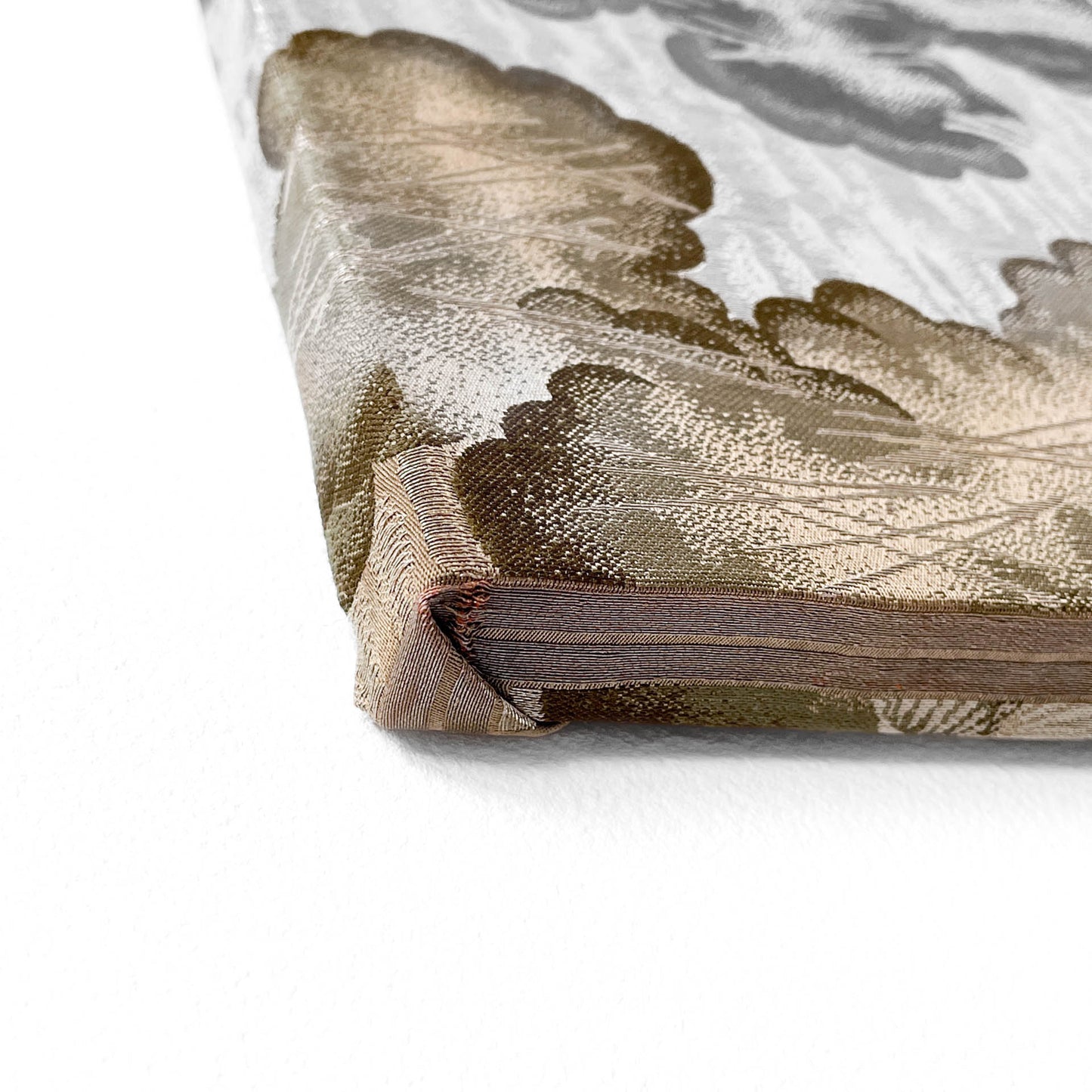In the Clouds ~Metamorphosis~
In the Clouds ~Metamorphosis~
Verfügbarkeit für Abholungen konnte nicht geladen werden
Size
about 28cm x about 46cm x about 2cm
Materials
wooden frame, cotton linen canvas (under-layer), pure silk (outside-layer)
About this canvas
Pine needles and phoenixes on this obi canvas express the wish for longevity for its owner.
Period/Story
This obi has been carefully preserved for over a century without regular use, which has kept the weaving in excellent condition while maintaining the distinctive ambiance of the Taisho era.
Explanation and meaning of pattern and colors
The artistic composition of this piece depicts phoenixes gracefully soaring amidst the clouds and pine needles.
The phoenix has held a significant place as a mythical bird of auspicious omens in Chinese culture, symbolizing peace and happiness. Legend tells that phoenix eggs possess remarkable properties for promoting longevity, and the phoenix itself is closely associated with concepts of "longevity" and "rejuvenation." This symbolism was introduced to Japan during the Nara period (710-794) and is often found in national treasures, such as brocade textiles in the Shosoin Repository.
In East Asia, the pine tree is also regarded as a symbol of "longevity and immortality" due to its evergreen leaves that remain vibrant even in winter. In Japan, it's often referred to as the "everlasting tree" because of its year-round greenery, signifying good luck since ancient times. It's an integral part of the "Sho, Chiku, Bai" trio (meaning "pine, bamboo, and plum" in Japanese). The plum tree, which blooms in winter, and the bamboo, which retains its greenery throughout the seasons, are often associated with the pine. Kadomatsu, a traditional pine decoration placed at the entrance of homes during New Year's, is believed to symbolize the welcome extended to the gods.
Description of fabric characteristics
The maru-obi (丸帯), characterized by patterns on both the front and back sides of the obi, used to be a common choice for luxurious formal obi until the 1940s. However, crafting a single maru-obi involves an immense amount of handwork and is typically adorned with intricate embroidery and beaten gold, making it quite heavy (sometimes up to 2 kilograms) and challenging to tie. As a result, maru-obi is not produced anymore. You might still come across maru-obi in antique shops, but that would be a rare case.
This particular maru-obi, with its serene shades of gold and brown, features a gradient of deep colors resembling clouds, adding an elegant and sophisticated touch to its design.
Decoration Advice
The canvas can be displayed on a table, wall, etc. You will need tacks or nails to hang it on the wall. Because it is light, you can hang it with two ordinary thumbtacks. You can also lean it against an easel. Perfect for redecorating your room, as a housewarming gift, as a present, or as a souvenir for your loved ones! The product will be carefully wrapped and sent, so it can be used as a gift on the go.
Precaution
All the works are made from real kimonos, antiques and vintages. For this reason, the fabric may have traces of long-term use and minor fabric damages. - In case there are any scratches or stains, we always add a photo of the area on the item page, so please check before purchasing. Regarding precaution, cancellation and refund policy, please refer to the refund policy in the footer section of the site for information.
Share
